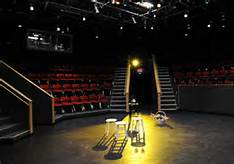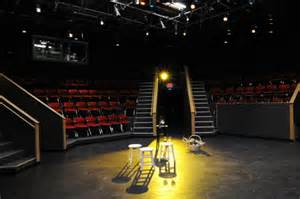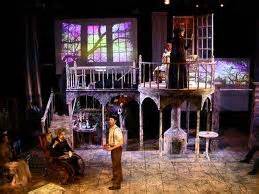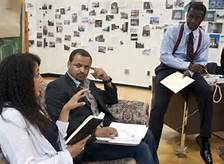

There’s something to be said for being curious, especially in an artistic profession such as theatre. By “curious” I mean not just wanting to know something, but being driven to find the answer, no matter what roadblocks arise. Perhaps its best to delineate this type of curiosity a bit more by adding the word “active” to it.
Active Curiosity

If you are actively curious, it means that you’re not waiting for someone to tell you the answer; you are hunting for it as soon as you perceive that you have a question. In fact, a hallmark of this type of inquiry is the tendency for people to ask questions when something is not clear to them, or when they don’t know or understand something. Not all people do this. Many people when they read something they don’t understand don’t bother to look up the word, historical or cultural reference, or literary allusion. They simply keep going. If you’re one of those people who just keeps going, you’re going to have a tough time making a living in the theatre (and in a bunch of other professions too).
Why Is This Needed?
Active curiosity is a trait that is required of anyone in the theatre. Why is this so? Consider when you read a play how many things you simply don’t know or understand when reading it; if you don’t care to get the information, who is going to do so?
It is the actor’s, director’s designer’s technician’s, stage manager’s, dramaturge’s, producer’s, and everyone else’s job in the theatre to seek out answers. And, as noted, the first step in doing so is to recognize that there are questions to be asked and, after that, answered.
Can It Be Taught?

If someone is not actively curious, can we teach that quality? This is not a “yes” or “no” answer. The answer to that question is “sometimes.” If someone is truly motivated to succeed, then they can be taught what they need to do in order to be actively curious.
To do this, teachers, directors, mentors, supervisors, and others who are training students need to begin by asking the questions for those students, and then requesting the answers. If a student is unaware that they should be doing this exercise on a continual basis, then instruct them that it is a basic part of their job and give them some tips and techniques on how to engage in active curiosity.
Moving Forward
A thirst for knowledge will always result in someone seeking refreshment that will give them the needed knowledge to proceed to the next step. When students you’re working with make the effort to discover information, analyze artistic elements, and come to conclusions that get them to the next step and ultimately the next level be sure to recognize them for their efforts. Doing so will result in students repeating what is very admirable behavior, and eventually active curiosity will become a habit.

 Random Item
Random Item